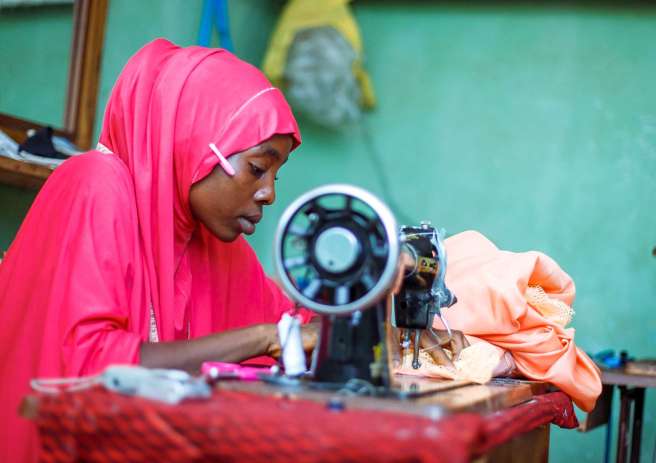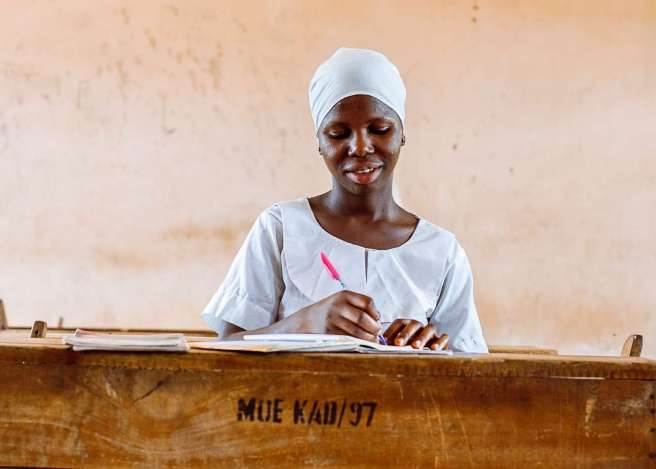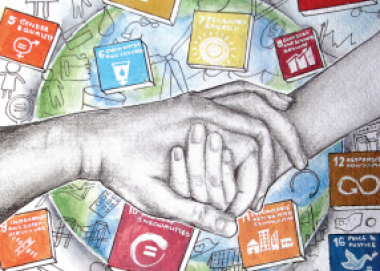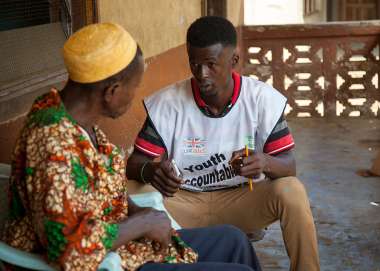By Christian Aid Nigeria team
The Collective Action for Adolescent Girls Initiative (CAAGI) in Nigeria, brought together various stakeholders to discuss and provide practical solutions around the 3Es which the project seeks to address: Education, Economic empowerment and Early marriage for adolescent girls. These stakeholders included parents, faith actors, traditional leaders, as well as young men and the adolescent girls themselves.
Some of the strategies adopted include developing the faith leaders’ toolkit in both English and Hausa languages and the formation of various support groups. These were then used to advocate for better choices and opportunities, including skills acquisition and the provision of training materials for adolescent girls.
Since the start of the project in 2016, there have been remarkable successes and behavioural changes across project communities. Faith leaders are beginning to speak up for adolescent girls’ advancements, parents are supporting their daughters’ development, there has been an increase in enrolment and re-enrolment of girls in school. In addition, marriages of underage girls have been cancelled and more of them are now earning thanks to learning income generating skills.
Image credits and information

Zuwaira got married at 12 and was divorced at the age of 14. She had lost her self-esteem and was existing without any hope of a bright future for her or her son. They were initially trained in self-esteem, decision making, leadership, entrepreneurship and negotiation skills as well as receiving a business starter pack. These girls were inspired to become financially resilient, by learning income generating skills to improve their livelihoods, support their education and avoid being forced into early marriage because of income restraints.
As a result of the training, Zuwaira decided to take up sewing supported by one of the community specialists. She also benefitted from the starter packs and has already begun to generate the necessary income, having completed several sewing jobs that have helped her to meet her needs, those of her son and her community.
I have bought uniforms and school sandals for both my son and my sister’s son, who lives with me”. I also bought school books and pencils for my son.
However, for girls like Zuwaira, having one source of income is not sufficient, so she became a member of the Savings and Loans Association (SLA) in her community. She has benefitted from the association, by taking out a loan of 5,000 Naira (about £10) to buy grain. She borrowed the money in August/September and bought the grain, which she sold and made a profit of 4,000 Naira. She has now repaid the loan with interest back to the SLA. She continues to use the profit from the loan to buy and sell more grain.

Food production funds Blessing's future
Married adolescent girls were not left out of this economic empowerment plan. Blessing Bitrus, a 17 year-old mother of two has now returned to school.
She was initially helped by members of a women's support group but now is paying her own fees and those of her children. During the needs assessment, she indicated an interest in starting a roadside food-vending business next to her school.
Blessing was supported with 2 bags of grain and other condiments to start her business. She has processed grain into local food items such as moi-moi and akara, which she sells to the students and other community members, during breaks when she is not in school.
With proceeds from Blessing’s food vending business, she has been able to purchase farmland, worth 40,0000 Naira (about £80) to grow cassava. She has paid back most of it already and the balance will be due once she harvests the cassava. Blessing intends to process the cassava into garri, a local staple food in the community. As a result, life has improved in the areas of health, education and nutrition, for herself, her two children and her whole household.
Across project communities, other adolescent girls who have benefited from the empowerment are following the same path. The effect of this is that more girls are gradually becoming economically empowered and can return to school with the funds they have generated. They can now pursue their dreams of becoming nurses, doctors, teachers and other professions of their choice, rather than becoming young brides and mothers.
The CAAGI project has successfully empowered girls not just for themselves but for their families and the community.



